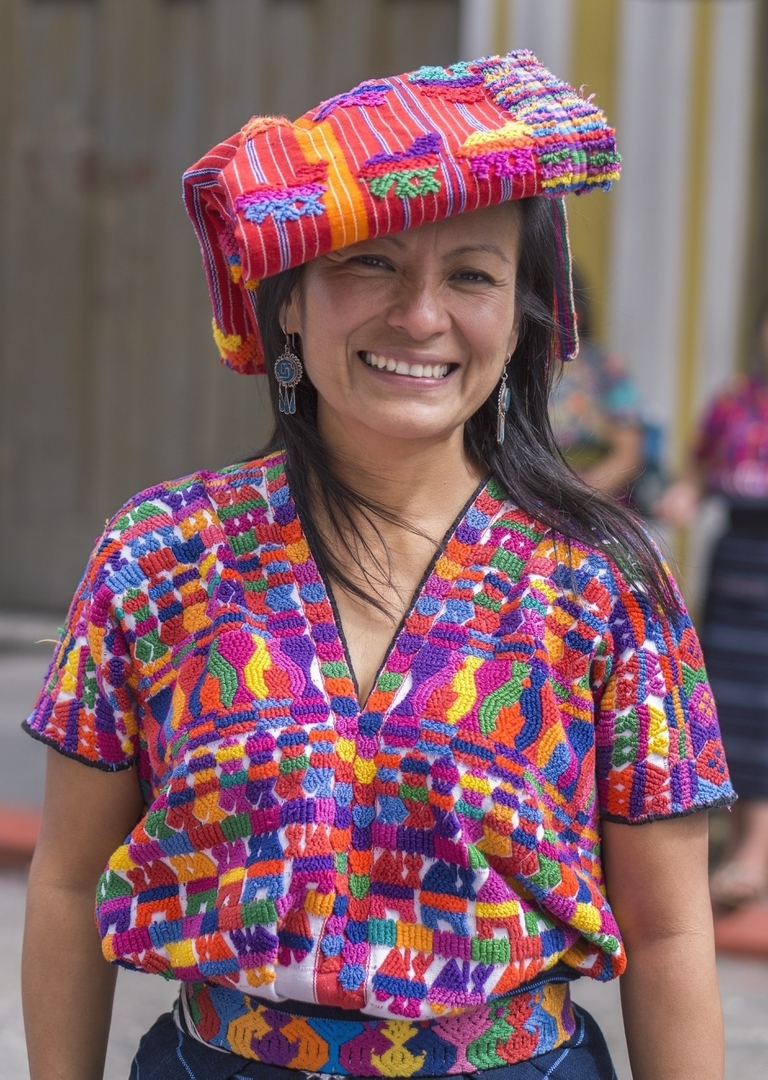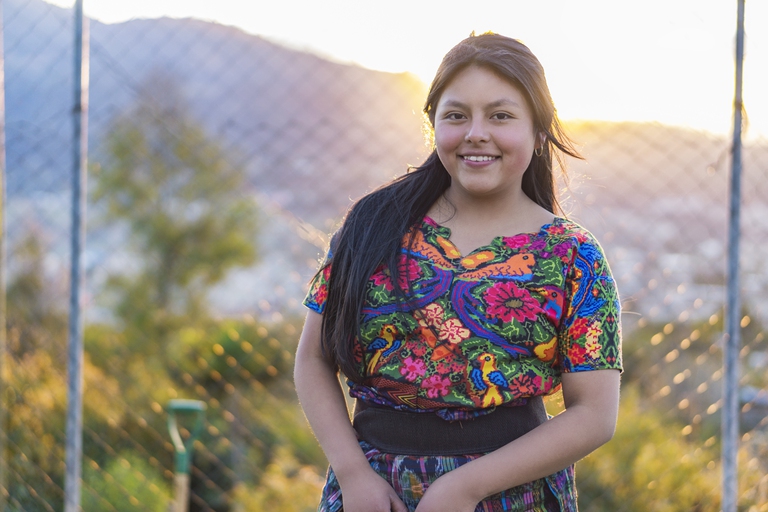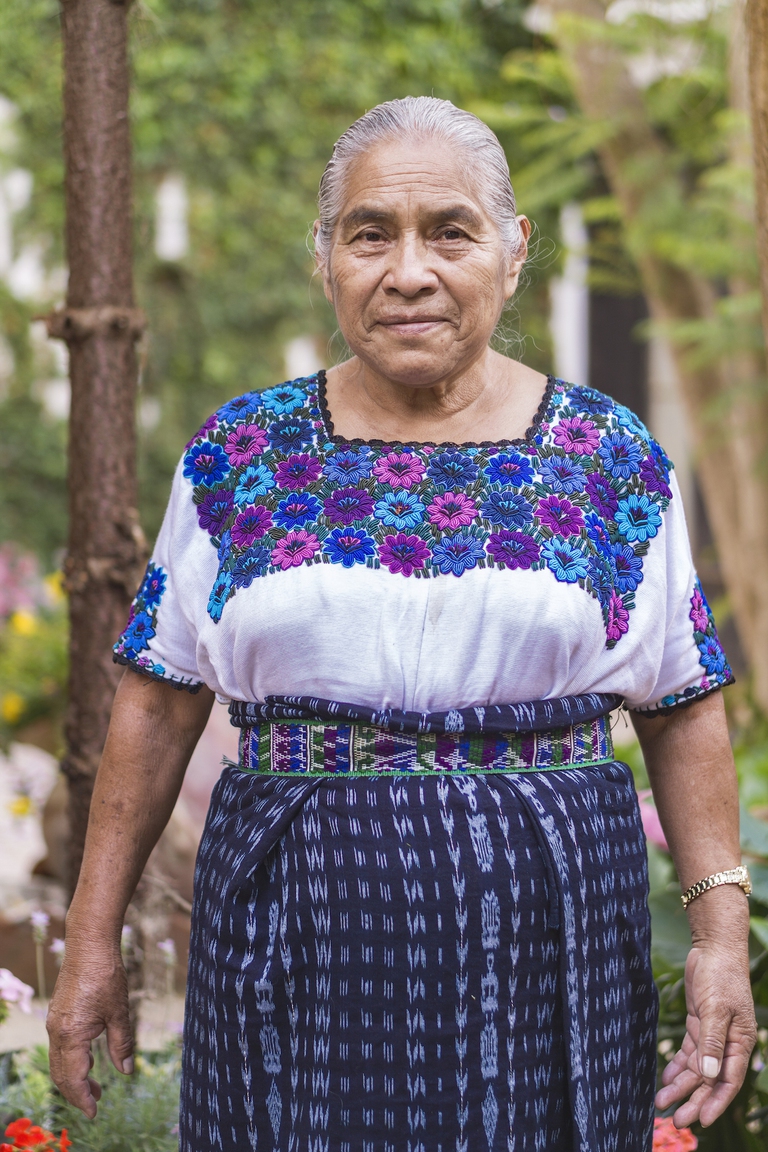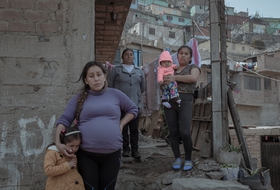
A special report from the Yuqui territory delves deep into the dreams, challenges, joys and sadness of one of Bolivia’s most vulnerable indigenous groups.
An organisation that unites over 1,000 mainly Maya women in Guatemala has expressed alarm that indigenous handicrafts, textiles called “huipiles” in particular, are under threat because underpriced industrial fabrics appropriating indigenous patterns have flooded the Guatemalan market, depriving many native women of their main source of income. Read more: Down to Xjabelle, the fashion collection by a young designer with Down
An organisation that unites over 1,000 mainly Maya women in Guatemala has expressed alarm that indigenous handicrafts, textiles called “huipiles” in particular, are under threat because underpriced industrial fabrics appropriating indigenous patterns have flooded the Guatemalan market, depriving many native women of their main source of income.
Read more: Down to Xjabelle, the fashion collection by a young designer with Down syndrome
In May 2016 the Women’s Association for the Development of Sacatepéquez (AFEDES), a grassroots movement against gender inequality in Guatemala, brought a motion to the Constitutional Court that indigenous textiles should receive protection under the Constitution, which guarantees to “recognise, respect, and promote [indigenous] forms of life, customs, traditions”.
To counter mass-produced textiles, in November 2016 AFEDES proposed a legislative reform that would recognise the notion of collective intellectual property and acknowledge indigenous peoples as collective authors of their cultural heritage. The bill would thus protect Maya weavers from plagiarism of their patterns – a phenomenon frequently occurring in the fashion industry – and result in their right to receive royalties for their commercial use. The bill, number 5247, has been officially accepted to debate and awaits Congress’ consideration.
Guatemala is a member of the World Intellectual Property Organisation (WIPO), a UN agency that protects intellectual property internationally, and has enacted a number of provisions on the matter but hasn’t regulated the collective intellectual property, even though 51 per cent of the country’s population belongs to the Maya group, whose cosmovision is grounded in the idea of collectivity.
In fact, this isn’t the first time indigenous groups demand recognition of their collective intellectual property rights. For instance, in 1999 the Union of Yagé Healers of the Colombian Amazon insisted on recognizing yagé, a traditional spiritual brew used in rituals and medicine, as belonging to the collective traditional wisdom of indigenous peoples. They were primarily motivated by the urgency to stop the devastating commercialisation of traditional plants that profaned their culture.
Likewise, Maya weavers emphasise that their textiles are a key expression of their cultural and spiritual identity with patterns incorporating spiritual elements, for example from the Mayan calendar, and their fight embodies their struggle for indigenous empowerment. “Although from a Western perspective the act of producing our own clothes … is synonymous to backwardness or poverty, for us it constitutes the road to free self-determination of our communities,” AFEDES organiser Angelina Aspuac said during a Constitutional Court hearing.
“We are the daughters of the grandmothers who won’t die … they keep living in the universe of our textiles,” Aspuac added, to emphasise the cultural continuity that huipiles safeguard.
The Mayan population was the principal victim of the civil war that ravaged Guatemala between 1960 and 1996. Out of the estimated 200,000 people killed or who disappeared during the conflict between the government and leftist guerrillas, 83 per cent were of Maya origin. And by intensifying efforts to regain control over their cultural heritage, not only do indigenous people symbolically reclaim their cultural agency and settle the past, but also embark on a battle over the empowerment they deserve in the new social order.
Siamo anche su WhatsApp. Segui il canale ufficiale LifeGate per restare aggiornata, aggiornato sulle ultime notizie e sulle nostre attività.
![]()
Quest'opera è distribuita con Licenza Creative Commons Attribuzione - Non commerciale - Non opere derivate 4.0 Internazionale.
A special report from the Yuqui territory delves deep into the dreams, challenges, joys and sadness of one of Bolivia’s most vulnerable indigenous groups.
One in three women have suffered physical or sexual violence. With contributions from Europe, Africa, Asia and Latin America, we look at how this shadow pandemic affects every corner of the world.
The Istanbul Convention against gender-based and domestic violence marks its tenth anniversary. We look at what it is, who its signatories are, and what the future might hold.
European Commission President Ursula von der Leyen reminded us of the gravity of violence against women around the world, and of the Istanbul Convention’s utmost importance.
The Yuqui people of the Bolivian Amazon fight not only to survive in the face of settlers, logging and Covid-19, but to preserve their culture and identity.
President Erdoğan has pulled Turkey out of the Istanbul Convention, key in the fight against gender violence, claiming that it favours the LGBT community rather than family values.
Jair Bolsonaro is accused of crimes against humanity for persecuting indigenous Brazilians and destroying the Amazon. We speak to William Bourdon and Charly Salkazanov, the lawyers bringing the case before the ICC.
Activists hail the decision not to hold the 2023 World Anthropology Congress at a controversial Indian school for tribal children as originally planned.
Violence against women in Peru has increased as a result of Covid-19 lockdowns. 14,912 people were reported missing from January to November 2020, more than half of them minors and 64 per cent women. People have been confined to their homes for months, many forced to endure poor physical, economic and social conditions. A situation that










